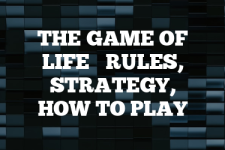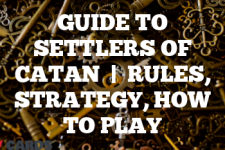Pandemic: Mastering the Game of Global Crisis Management
1. Introduction
Pandemic is a cooperative board game that challenges players to work together to stop the spread of four deadly diseases and save the world. The game was designed by Matt Leacock and published by Z-Man Games in 2008. It is unique in its cooperative nature, as players must work together rather than compete against each other.

The game is played on a world map, and players take on the roles of various specialists, each with unique abilities, to treat disease hotspots while researching cures for each of four plagues before they get out of hand. The game requires strategic planning and teamwork, making it a challenging yet rewarding experience.
The equipment needed to play Pandemic includes a game board depicting a world map with interconnected cities, cards that allow players to travel between cities and manage diseases, disease cubes representing four different diseases, and pawns representing the players.
- Game Board: The board is a map of the world, with cities connected by lines. Each city can hold up to three disease cubes of each color.
- Player Cards: These include city cards, event cards, and epidemic cards. City cards are used for travel and to discover cures. Event cards provide powerful effects that can aid the team. Epidemic cards increase the game’s difficulty by accelerating and intensifying the diseases’ spread.
- Disease Cubes: Four colors of cubes represent four different diseases. When a city has three cubes of the same color, an outbreak occurs.
- Pawns: Each player has a pawn that represents their specialist role on the board.
2. Rules for Playing Pandemic
The goal of Pandemic is for players to work together to discover cures for four diseases. The game ends victoriously if players manage to discover all four cures, even if not all diseases have been eradicated. However, the players lose if eight outbreaks occur, not enough disease cubes are left when needed, or not enough player cards are left when needed.
- Setup: Shuffle the player cards and deal cards to each player based on the number of players. Place the research station in Atlanta and the players’ pawns. Place disease cubes on the board as indicated by the infection deck.
- Turns: Players take turns in clockwise order. Each turn has three parts: taking four actions, drawing two player cards, and infecting cities.
- Actions: Actions include moving between cities, treating diseases, sharing knowledge, and discovering a cure.
- Epidemics: When a player draws an epidemic card, increase the infection rate, infect a new city with three disease cubes, and intensify by shuffling the infection discard pile and placing it on top of the infection deck.
- Outbreaks: If a city already has three disease cubes and needs to add another, an outbreak occurs. Each connected city receives one disease cube. If the outbreak causes a chain reaction, it can spread further.
House rules can be introduced to adjust the game’s difficulty or add new challenges, such as increasing the number of epidemic cards or limiting communication between players.
3. How to Win at Pandemic
Winning at Pandemic requires strategic planning, efficient use of resources, and effective teamwork. Here are some strategies for beginners, intermediate, and advanced players.
- Beginners: Focus on treating diseases and preventing outbreaks. Use your role’s special abilities to your advantage. Communicate with your team and plan your actions.
- Intermediate: Start to think about efficient travel. Use city cards to travel to critical areas. Try to predict where the next epidemic will occur and plan accordingly.
- Advanced: Aim to discover cures as quickly as possible. Use event cards strategically. Try to manage the player and infection decks to your advantage.
4. Best Strategies for Playing Pandemic
The best strategies for playing Pandemic involve efficient use of actions, strategic use of player cards, and effective teamwork.
- Efficient Actions: Try to make the most of each action. Treating diseases in cities that are about to outbreak or using actions to discover cures can be more beneficial than moving around the board.
- Strategic Card Use: City cards can be used for more than just travel. They are also necessary to discover cures. Event cards can be game-changers if used at the right time.
- Effective Teamwork: Communication is key in Pandemic. Discuss your plans with your team and coordinate your actions to be more effective.
5. Scenarios for Pandemic Board Game
In Pandemic, players will encounter various scenarios that will test their strategic planning and crisis management skills. Here are some common scenarios and how to handle them.
- Multiple Outbreaks: If multiple cities are on the verge of an outbreak, prioritize treating diseases in those cities to prevent a chain reaction of outbreaks.
- Lack of Player Cards: If the player deck is running low, focus on discovering cures before the game ends. Use event cards to help achieve this.
- Imminent Epidemic: If an epidemic is likely to occur soon, try to strengthen your position by treating diseases in high-risk cities and using event cards to mitigate the impact.
- Spread of Disease: If one disease is spreading rapidly, consider focusing your efforts on discovering its cure. Once a cure is discovered, treating that disease becomes more efficient.
6. Frequently Asked Questions about Playing Pandemic
- What happens when the player deck runs out? If the player deck runs out, the game ends and the players lose.
- Can I move to a city with three disease cubes? Yes, but if a fourth cube is added during the infection phase, an outbreak occurs.
- Can I share any card with another player? You can only share the card of the city you are both in, and only on your turn.
- What happens when all disease cubes of one color are used? If you need to place a disease cube of a color and none are left, the game ends and the players lose.
- Can we play with more than four players? The base game is designed for 2-4 players, but expansions allow for more players.

A digital native around since the early days of online gaming communities around 2001. An early contributor to the cult gaming site ClanTemplates, Adam has spent years giving free gaming resources to the community. With BoardCards, Adam is most experienced and commonly writing the articles on Strategy multi-player games like Settlers of Catan and Avalon. His first introduction to board games was via Mancala, an Egyptian-origin stone game and one of the oldest known games still played worldwide. Contact me via email



